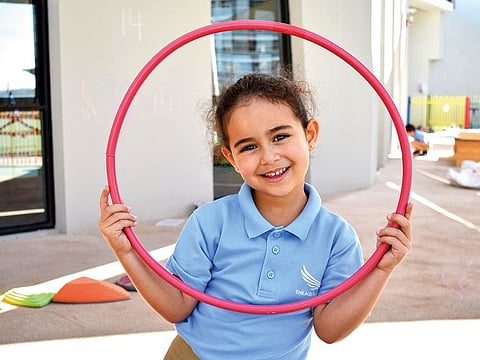UAE Top Schools: Keep that curve on the up
UAE schools share strategies to help lessen learning loss among students post-Covid

A study conducted in the US by global consultancy firm McKinsey within the school community during the fall months in 2020 revealed an acute sense of learning loss among students after they started their classes close to three months behind schedule. And while the study results were endemic to the US, the effects of the pandemic on students and resulting learning loss have been keenly felt across the globe.
The UAE education sector has always monitored global trends and tried to assimilate best practices as quickly as possible post-observation. The pandemic and the sense of learning loss felt by students and conveyed by their parents to staff was quickly analysed therefore, resulting in a host of individual premier UAE schools putting steps in place to mitigate the effects.
Student-teacher connect critical
At the Amity School Dubai, Principal, Sangita Chima says that despite the overnight disruption and abrupt move to a digital classroom environment, the learning process continued almost without a hitch, and believes that maintaining the connection between teacher and student is the first vital step in addressing learning loss. “Much like a ‘don’t give up’ mission, we believe in using all available means of communication in order to stay connected with the families in our school community,” says Chima. “We have altered our strategies and modified our learning programmes to ensure that learning loss is reduced to a considerable extent. Identifying students that need an extra hand by tracking achievement data, attendance and behaviour is key. These data driven indicators give teachers a heads up. Intensive tutoring within smaller targeted groups helps improve a student’s foundation skills. Accelerated learning in groups with ample time, instead of remedial teaching is another great way to support students that may have fallen back.”
Moving into smaller targeted groups also means improving the scope of free communication that acts as a learning enabler, something Michelle Choytooa, Inclusion Champion, Victory Heights Primary School in Dubai, stresses upon.
Communicate with your child
“Children have demonstrated great resilience through the pandemic, and switching to a new mode of learning for a large proportion of the 2019/20 academic year. While in some areas, children have not made the same level of progress as we would have expected, for the most part, attainment remains outstanding,” says Choytooa. “One area that we do feel the children have fallen behind, is in their ability to communicate their learning. A key focus for our school is the development of children’s oracy skills - and moving out of the classroom environment removed some of the structures that enabled them to do this as freely. So talk to your child — ask them about their learning — delve indepth into their answers, don’t accept closed responses - question them and challenge them.”
The powers of a challenging yet relevant curriculum to engage young minds cannot be understimated either, feels Wayne Howsen, Principal, The Aquila School, part of the International Schools Partnership. “We are proud to be a genuinely inclusive school and as such, regardless of their starting points – teachers are skilled and empowered to teach the children what they need to know right now. Through a well-pitched, active, engaging and relevant curriculum, we ensure every child makes as much progress as possible.”
Dr Paul Richards, Superintendent, American School of Dubai, is a confirmed optimist who believes a lot was learned from the pandemic on coping with and mitigating learning loss within the community, while allowing students to become true well-rounded global citizens. Rounding off the discussion, he states, “There has been much attention on learning loss, and much debate. When using traditional measures, such as standardised tests, some loss in achievement or slowed growth rates may be identified. Direct intervention by teachers, using targeted literacy strategies, will help remedy any losses that are identified through a data analysis. However, much has also been gained during the pandemic, in the development of social and emotional skills. Let’s not lose sight of this silver lining.”



![Social media claims of cancellations dismissed; official updates to be shared through authorised channels. [Illustrative image]](http://media.assettype.com/gulfnews%2F2025-11-15%2Fx2mp12df%2Fexam.jpg?w=320&auto=format%2Ccompress&fit=max)